ANNEE 1966
Samedi 8 janvier 1966 : Fidelio. Metropolitan Opera de New York.Bohm. Birgit Nilsson (Leonore). King. Evans. Edelmann. Pracht. Anthony. Milnes.
Review of Irving Kolodin in the January 22, 1966 issue of the Saturday Review
Return of Nilsson
Paraphrasing Shelley, one might ask: "If Nilsson comes, can Wagner be far behind?" The answer for the current Metropolitan season is, unfortunately, far, far behind. Our leading soprano of the heroic roles returned in Beethoven's "Fidelio" directed by Karl Boehm, but it will be March before anything of the Wagner repertory is heard.
About all that could be said of this" Fidelio" was, at least, that the German language was heard again (on the last night of the season's fifteenth week) for it was far from inspiring Beethoven. Nilsson herself, who has been suffering from an impacted tooth, was clearly below par, short of breath, and without the reserve to produce steadily below a forte. It was not a good night for Otto Edelman as Rocco: for all his authority, the voice was off center and without its usual sonority; and Geraint Evans, in his first venture as Pizarro, lacked the vocal thrust, indeed the proper range, for that malevolent creature. Add Mary Ellen Pracht as a thick-sounding Marzelline (where oh where was Judith Raskin, who has just the voice for the part?) and the vocal requirements for Act I were met head on only by Charles Anthony ( Jacquino) and George Shirley (First Prisoner).
There are, perhaps, some conductors who could, by sheer magnetism, take hold of such ill-adjusted elements and fuse them, for the while, into a glowing ensemble, but Boehm's gifts are not of that sort. His response was to drive hard, then harder, with no real effect on the singers and a kind of desperate but unavailing effort by an orchestra playing its second performance of the day and its seventh of a dismally disrupted (Quill) week. [Referencing Michael Quill, union leader]
In the circumstances, major interest veered to the debut as Florestan of James King, a Kansas-born baritone turned tenor. The time he has spent in Europe was evident in his clear well-articulated German and sure command of the role's dramatic demands. Promising, too, was the fresh, open sound of the voice, especially in the part of it (up to F) that remains of his original range. He did produce the top tones of his aria, but not without strain and a lot of "white" showing through. Whether this related to the occasion or the role (hardly what is known as "grateful") only the future can tell. A large audience that was eager to applaud had less opportunity, really, than it utilized.
Vendredi 14 janvier 1966 : Salomé. Metropolitan Opera de New York. Bohm. Birgit Nilsson (Salomé). Liebl. Dalis. Dooley. Shirley.
Mercredi 19 janvier 1966 : Salomé. Metropolitan Opera de New York. Bohm. Birgit Nilsson (Salomé). Liebl. Dalis. Dooley. Shirley.
Jeudi 20 janvier 1966 : BAYREUTH BACKSTAGE (NETWORK THREE) A new ' Ring'. An account by GEOFFREY SKEL TON and CHRISTOPHER SYKES of Wieland Wagner 's 1965 production of 'The Ring' at the Bayreuth Festival. The programme includes recordings of rehearsals and performances. with BIRGIT NILSSON as Briinnhllde THEO ADAM as Wotan and Joser GREINDL as The Wanderer Also an interview with WIELAND WAGNER
Samedi 22 janvier 1966 : Fidelio. Metropolitan Opera de New York.Bohm. Birgit Nilsson (Leonore). King. Evans. Edelmann. Pracht. Anthony. Milnes. ENREGISTREMENT LIVE.
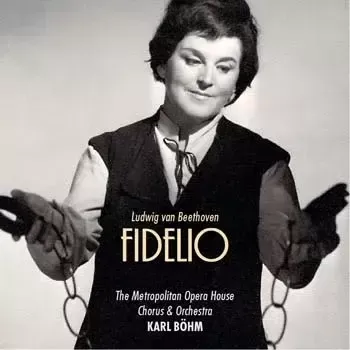
Mardi 25 janvier 1966 : Tosca. Metropolitan Opera de New York. Schick. Birgit Nilsson (Floria Tosca). Corelli. Colzani.
Vendredi 28 janvier 1966 : Salomé. Metropolitan Opera de New York. Bohm. Birgit Nilsson (Salomé). Liebl. Dalis. Cassel. Shirley.
Lundi 31 janvier 1966 : Fidelio. Metropolitan Opera de New York.Bohm. Birgit Nilsson (Leonore). King. Dooley. Edelmann. Pracht. Anthony. Milnes.
Samedi 5 février 1966 : Salomé. Metropolitan Opera de New York. Bohm. Birgit Nilsson (Salomé). Liebl. Rankin. Cassel. Shirley.
Jeudi 10 février 1966 : Elektra. Opéra royal de Stockholm. Klobucar. Ericson. Birgit Nilsson (Elektra). Lindholm. Jehrlander. Saeden.
Vendredi 18 février 1966 : Elektra. Staatsoper Vienne. Bohm. Resnik. Birgit Nilsson (Elektra). Rysanek. King. Waechter.
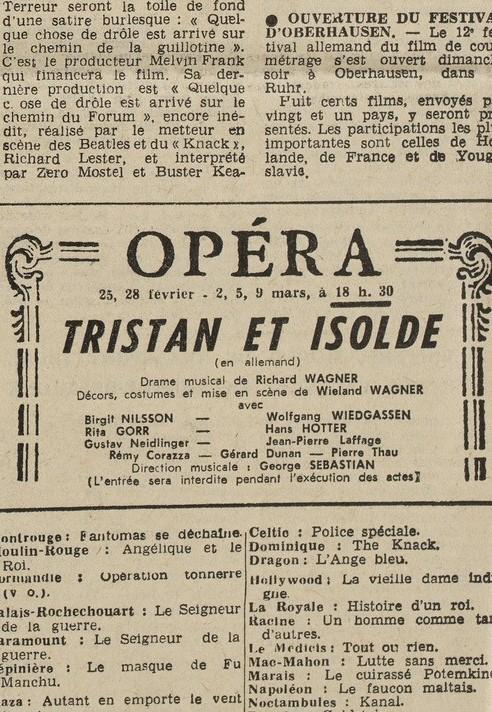
Vendredi 25 février 1966 : Tristan und Isolde. Paris, Palais Garnier. Sebastian. Birgit Nilsson (Isolde). Windgassen. Gorr. Hotter. Neidlinger. Laffage.
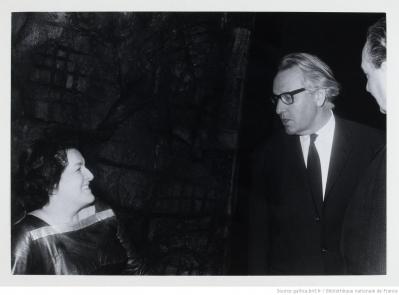
Lundi 28 février 1966 : Tristan und Isolde. Paris, Palais Garnier. Sebastian. Birgit Nilsson (Isolde). Windgassen. Gorr. Hotter. Neidlinger. Laffage.
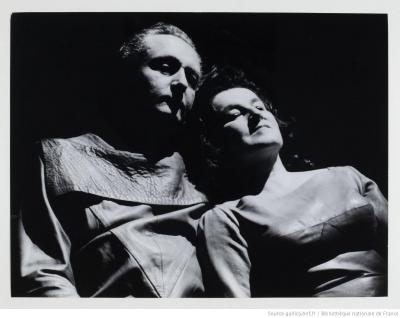
Mercredi 2 mars 1966 : Tristan und Isolde. Paris, Palais Garnier. Sebastian. Birgit Nilsson (Isolde). Windgassen. Gorr. Hotter. Neidlinger. Laffage.
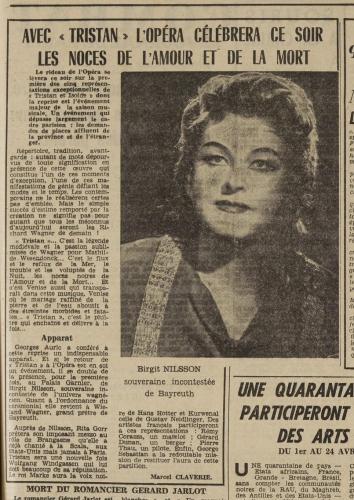
Samedi 5 mars 1966 : Tristan und Isolde. Paris, Palais Garnier. Sebastian. Birgit Nilsson (Isolde). Windgassen. Gorr. Hotter. Neidlinger. Laffage.
Mercredi 9 mars 1966 : Tristan und Isolde. Paris, Palais Garnier. Sebastian. Birgit Nilsson (Isolde). Windgassen. Gorr. Hotter. Neidlinger. Laffage.
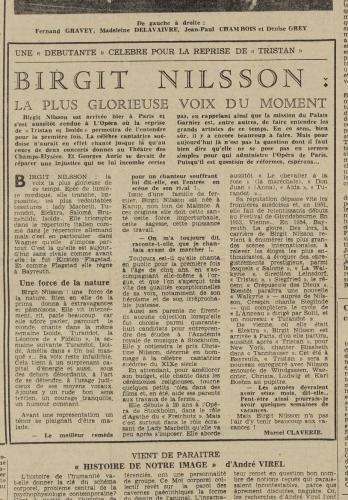
Samedi 19 mars 1966 : Tannhauser. Metropolitan Opera de New York. Rosenstock. Nuotio. Birgit Nilsson (Vénus / Elisabeth). Stewart. Macurdy. Sergi. Franke. Goodloe. Scott.
Review by Harriett Johnson in the New York Post:
Nilsson Wins Wagner's Contest
Birgit Nilsson as Elisabeth in "Tannhaeuser" didn't compete in the Act II song contest but she won it Saturday night When the opera was given for the first time since 1961 at the Metropolitan Opera. Performing both the siren, Venus, and the saintly daughter of the Landgrave, the first singer in Met history to do both roles in the same performance, Miss Nilsson, triumphed over all. Though nobody would take her for a ballerina, she has a disciplined body that curves in the right places and, with the sinuous costume she wore, she looked lusciously tempting. And when she sang, nobody but a deaf stone could have resisted her.
As Elisabeth she sang gloriously. Her "Dich teure Halle" will probably become more exuberant with repetition here, but the way she sang the "Prayer," it came from Heaven, no intercession necessary. Miss Nilsson has no close contender for the title "Queen of Song" at the Metropolitan. The phrase may be a cliche but it tells the story. For scintillating sound, masterful vocal technique and versatility, she is unrivalled.
Despite some admirable singing from her colleagues, without Miss Nilsson the evening would have been tedious. Being early Wagner, "Tannhaeuser" has not the fire, expressiveness or musical grandeur of the later works. To make its length retain enough excitement, the work needs a hand that blends elasticity with firmness more authoritatively than conductor Joseph Rosenstock demonstrated. It may be blasphemy, but if Rosenstock had been more inspired by Venus and less by Elisabeth, the evening would have brightened.
Mercredi 23 mars 1966 : Tannhauser. Metropolitan Opera de New York. Rosenstock. Nuotio. Birgit Nilsson (Vénus / Elisabeth). Stewart. Macurdy. Sergi. Franke. Goodloe. Scott.
Samedi 26 mars 1966 : Tannhauser. Metropolitan Opera de New York. Rosenstock. Nuotio. Birgit Nilsson (Vénus / Elisabeth). Stewart. Macurdy. Sergi. Franke. Goodloe. Scott. ENREGISTREMENT LIVE.
Mardi 29 mars 1966 : Tannhauser. Metropolitan Opera de New York. Rosenstock. Nuotio. Birgit Nilsson (Vénus / Elisabeth). Stewart. Hines. Sergi. Franke. Goodloe. Scott.
Vendredi 1 avril 1966 : OVERTURE / NETWORK 3. Spring (Grieg) BIRGIT NILSSON (soprano) with the VIENNA OPERA ORCHESTRA
Conducted by BERTIL BOKSTEDT
Samedi 2 avril 1966 : Tosca. Metropolitan Opera de New York. Schick. Birgit Nilsson (Floria Tosca). Tucker. Colzani.
Jeudi 7 avril 1966 : Fidelio. Metropolitan Opera de New York. Rosenstock. Birgit Nilsson (Leonore). Vickers. Meredith. Wiemann. Pracht. Schmorr. Milnes.
Samedi 16 avril 1966 : New York. GALA FAREWELL METROPOLITAN OPERA HOUSE. Stokowski. Molinari-Pradelli. Rudolf. Schick. Varviso. Cleva. Rosenstock. Mehta. Adler. Prêtre / Moffo. Ordassy. Sergi. Anthony. Diaz. Walker. Merrill. McCracken. Colzani. Siepi. Kirsten. Resnik. Votipka. Baldwin. Franke. Cehanovsky. Albanese. Vickers. Corena. Peters. Rigal. Peerce. Tozzi. Crespin. Cvejic. Price. Tebaldi. Corelli. Konya. Birgit Nilsson (Gotterdammerung : Immolation scene). Curtis-Verna. Baum. Madeira. Sereni. Macurdy. Scott. Jerell. Heyes. Jones. Mahler. Stratas. Miller. Guarrera. Pracht. Grillo. Kriese. Shirley. Uppman. Steber. Dunn. Thebom. Alexander. Harvuot. Caballe. Raskin. Elias. Milanov. Tucker. Tucci. Gedda. Hines.
Jeudi 28 avril 1966 : Turandot. New Orléans. Andersson. Gismondo. Nilsson. Schuh. Moscona. ENREGISTREMENT LIVE.
Mercredi 4 mai 1966 : Tosca. Opéra royal de Stockholm. Savini. Birgit Nilsson (Floria Tosca). Ulfung. Saeden. Hallgren. Lundborg. Jacobsson. Carlsson. Wallskog. Lindenstrand. ENREGISTREMENT LIVE.
Samedi 7 mai 1966 : Aida. Opéra royal de Stockholm. Savini. Hoiseth. Birgit Nilsson (Aida). Ericson. Jupither. Tyren. Rundgren. ENREGISTREMENT LIVE.
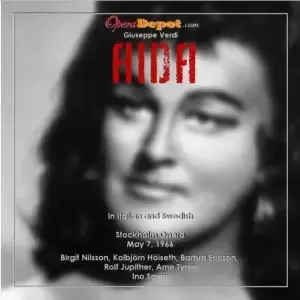
Dimanche 15 mai 1966 : Concert Copenhagen Town Hall (Danemark). A la tête du Royal Danish Orchestra : Johan Hye Knudsen. Au programme : Nabucco (ouverture), Vissi d'arte (Tosca), Pace, pace, mio dio (La forza del destino), ces deux airs étant chantés par Birgit Nilsson. Le concert s'achève par l'ouverture de Masquerade de Carl Nielsen. A cette occasion; Birgit Nilsson reçoit le prix Léonie Sonning de 50.000 couronnes danoises.
Mardi 17 mai 1966 : Fidelio. Royal Danish Opera, Copenhague. John Frandsen / Birgit Nilsson (Leonore), Willy Hartmann (Florestan), Frans Andersson (Pizarro).
Fidelio is Beethoven’s hymn to the infinite power of marital love, and that was exactly what Birgit Nilsson managed to express in a gripping but at the same time artistically extremely disciplined performance. Vocally alone, one delighted at how, like a chamber musician, she added to the many ensembles without obscuring others with her vocal splendour. […]. She looked magnificent and carried herself brilliantly on stage, just like the “woman who pretends to be a man,” but whose true femininity still shone through in all the psychologically right places. The flowers she received were therefore fully justified, as was the audience clapping and stamping in time.
(Hans Vogt, Aktuelt, 18 May 1966)
Dimanche 5 juin 1966 : Paris - Birgit Nilsson inscrit son nom, à 20 heures, au livre d’ or de France-Culture. Au cours de l’ interview, elle évoque sa vie, sa carrière, précise sa conception du théâtre, de ses rôles, de Wagner et de Verdi, affirmant son désir de ne pas se spécialiser, d’ interpréter aussi bien le répertoire italien que le répertoire allemand. Pour illustrer vocalement cette émission, Birgit Nilsson qui avoue détester les héroïnes douces et pures, a choisi elle-même des extraits de ses rôles préférés : Brunnhilde du Crépuscule des Dieux, Salomé, Lady Macbeth et la princesse Turandot.
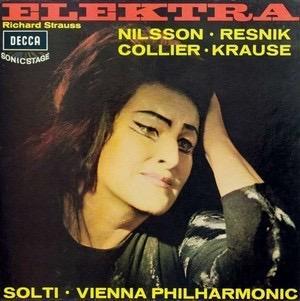
Juin 1966 : ELEKTRA. Vienne, Sofiensaal. Début de l'enregistrement en studio sous la direction de Georg Solti avec Birgit Nilsson (Elektra), Resnik, Collier, Krause, Stolze. Deux autres sessions ont été nécessaires en septembre, puis en novembre 1966 pour achever cet enregistrement. ENREGISTREMENT STUDIO.
Mercredi 8 juin 1966 : Siegfried. Staatsoper Vienne. Ludwig. Windgassen. Birgit Nilsson (Brunnhilde). Hotter. Pernerstorfer. Klein. Frick. Rossel-Majdan.
Dimanche 12 juin 1966 : Gotterdammerung. Staatsoper Vienne. Ludwig. Windgassen. Birgit Nilsson (Brunnhilde). Janowitz. Fritz. Hotter. Pernerstorfer. Hoffman.
Samedi 18 juin 1966 : Récital Birgit Nilsson. Monaco (Salle Garnier)
Lundi 20 au jeudi 30 juin 1966 : Tosca. Rome. Maazel. Corelli. Birgit Nilsson (Floria Tosca). Fischer-Dieskau. ENREGISTREMENT STUDIO.
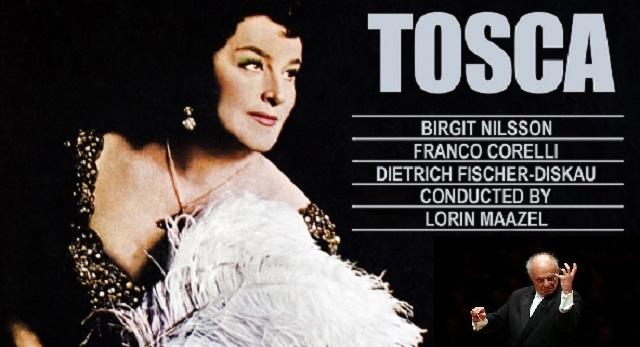
Dimanche 26 juin 1966 : TOAST OF THE TOWN 19.40. Émission TV de John Moffitt avec Ed Sullivan, Birgit Nilsson chante Pace, pace, o mio Dio (La forza del destino), The Arirang Ballet, The Bero Sini Chimps, Joyce Cuoco, London Lee, Anne Meara, Jerry Stiller, The swingin' Lads, Jerry Vale, Nancy Walker, The Yong Brothers.
Vendredi 1 juillet 1966 : UN BALLO IN MASCHERA. BBC NETWORK 3. Records of excerpts from Verdi's opera with BIRGIT NILSSON , GIULIETTA SIMIONATO , CARLO BERGONZI, and CORNELL MACNEIL
Jeudi 14 au samedi 16 juillet 1966. Tristan und Isolde. Festival de Bayreuth. ENREGISTREMENT COMPILATION LIVE incluant les représentations des 4 et 16 août. Bohm. Windgassen. Birgit Nilsson (Isolde). Ludwig. Wachter. Talvela. Heater.
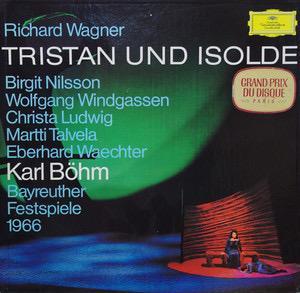
Mercredi 27 juillet 1966 : Die Walkure. Festival de Bayreuth. Bohm. King. Talvela. Adam. Birgit Nilsson (Brunnhilde). Rysanek. Burmeister. ENREGISTREMENT LIVE.
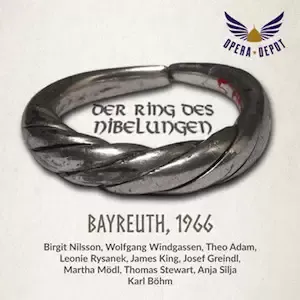
Vendredi 29 juillet 1966 : Siegfried. Festival de Bayreuth. Bohm. Windgassen. Birgit Nilsson (Brunnhilde). Wohlfahrt. Adam. Neidlinger. Bohme. Soukupova. ENREGISTREMENT LIVE.
Dimanche 31 juillet 1966 : Gotterdammerung. Festival de Bayreuth. Bohm. Windgassen. Birgit Nilsson (Brunnhilde). Stewart. Dvorakova. Greindl. ENREGISTREMENT LIVE.
Jeudi 4 août 1966 : Tristan und Isolde. Festival de Bayreuth. Bohm. Windgassen. Talvela. Birgit Nilsson (Isolde). Waechter. Heater. Ludwig. ENREGISTREMENT LIVE.
Mardi 16 août 1966 : Tristan und Isolde. Festival de Bayreuth. Bohm. Windgassen. Talvela. Birgit Nilsson (Isolde). Waechter. Heater. Hoffman.
Samedi 20 août 1966 : Tristan und Isolde. Festival de Bayreuth. Bohm. Windgassen. Talvela. Birgit Nilsson (Isolde). Waechter. Heater. Hoffman.
Vendredi 2 septembre 1966 : WAGNER. BBC NETWORK THREE. Gramophone records of excerpts from his music-drama Cötterdämmerung with BIRGIT NILSSON DIETRICHFlSCHER-DlESKAU GOTTLOB FRICK WOLFGANG WINDGASSEN VIENNA STATE OPERA CHORUS
VIENNA PHILHARMONIC ORCHESTRA Conducted by GEORG SOLTI stereophonic broadcast
Lundi 5 septembre 1966 : BBC NETWORK 3 - BIRGIT NILSSON with the VIENNA OPERA ORCHESTRA
Conducted by BERTIL BOKSTEDT. Songs by Grieg Rangström , . and Sibelius on a gramophone record. Stereophonic broadcast
Lundi 26 septembre 1966 : Turandot. Metropolitan opéra de New York. Mehta. Birgit Nilsson (Turandot). Corelli. Stratas. Giaiotti. Caruso.
Unsigned review in the Journal-American
"Turandot": The Best To Date at New Met
The celebrating the opening of the new opera house over, the Metropolitan Opera settled for repertory last night and put on its best show to date.
Puccini's "Turandot" began the regular subscription season as a five-year old production that readily adjusted itself to new surroundings. It looked handsome, and it moved handsomely. Sighs. Birgit Nilsson and Franco Corelli took the leading roles as usual, the singing was magnificent.
What else is there to say! This was a beautifully knit performance. Cecil Beaton's sets and costumes rate among the best creations. Nathaniel Merrill has achieved some of the most imaginative staging. The cast is excellent.
A new element entered with Zubin Mehta taking the conductor's assignment. He imparts vitality and usually comprehends everything he does. The live acoustics of the pit led to overloud playing, but most interestingly he restrained himself in giving full rein to Puccini's romanticism.
The Orientalism in the music may be super-imposed, but its romanticism is ingrained. I missed both the lushness and the theatrical magic lurking in the score. In short, the orchestral playing had neither glow nor dramatic bite to do justice to this fullest-scored and most mature of Puccini's operas.
Just to hear Nilsson and Corelli almost sufficed last night since both were in superb voice. Yet Teresa Stratas gave such an artistically appealing portrayal of Liu that she deservedly belonged in their company. Bonaldo Giaiotti contributed a Timur of vocal and dramatic consequence.
Those conspirators Ping, Pang and Pong carried off their tricky roles more successfully than usual. I thought, thanks to the rapport of Theodor Uppman (new as Ping), Robert Nagy, and Charles Anthony. Thus the performance on stage had the best integration since the season began.
"Turandot" has found a sure place in the repertory; in fact, it could be developing into an old favorite. Outstanding success does pivot on the title role, to be sure, but at the moment that could not be better cast anywhere.
Mardi 27 septembre 1966 : ORCHESTRAS OF LONDON / NETWORK THREE : Recitative: Son giunta: Aria: Madre pietosa vergine (Act 2); Pace. pace (Act 4) (La Forza del Destino) (Verdi) Recitative: Bento finvennl Aria: Anch'io disciusio (Act 2. Nabucco) (Verdi) BIRGIT NILSSON (soprano) ROYAL OPERA HOUSE CHORUS Conducted by ARGEO QUADRI
Lundi 3 octobre 1966 : Turandot. Metropolitan opéra de New York. Mehta. Birgit Nilsson (Turandot). Corelli. Stratas. Giaiotti. Caruso.
Vendredi 7 octobre 1966 : Turandot. Metropolitan opéra de New York. Mehta. Birgit Nilsson (Turandot). Corelli. Freni. Giaiotti. Caruso.
Samedi 15 octobre 1966 : Turandot. Metropolitan opéra de New York. Mehta. Birgit Nilsson (Turandot). Corelli. Moffo. Giaiotti. Caruso. ENREGISTREMENT LIVE IN-HOUSE.
Review of John Chagy of the Jewish Press
"Turandot" Outstanding Spectacle
The sumptuous, colorful production of Pucnini's last great opera "Turandot" was especially appropriate at the new, resplendent Metropolitan Opera at Lincoln Center.
The clean lines of the façade with Marc Chagall's joyous paintings behind the tall windows, the red carpeted lobby, its delicate curved walls and balustrades, and the golden splendor of the interior with the rising contoured arch of tiers leading the eyes to the aristocratic delicacy of the glowing chandelier, seemed to me a perfect home for the "Turandot," as a spectacle. As a treat for the ear, the sound was equally impressive.
Unlike the sad experience of Philharmonic Hall, critics and audiences praised the new opera house's acoustics without reservation. Every delicate note of the instrument or voice was clearly heard and the rich sonorities of the full orchestra and ensembles filled every corner of the house.
Nilsson Outstanding
Birgit Nilsson was magnificent as Turandot. Her portrayal of the icy princess who condemns royal suitors to the axe when they cannot solve her three riddles was thrilling it its power and vocal brilliance. The Swedish-born soprano has no peer today in this role.
Franco Corelli, as Calaf, the last but successful suitor, sings with ardor and command. His tenor voice reaching with singing power the high notes of his arias. He seldom resorts to sobs to convey his emotions.
Anna Moffo replaced Mirella Freni at the last moment in the role of Liu the slave girl. Her experience in the early productions of the opera enabled her to present an appealing, poignant portrayal. Her superior acting ability added dramatic interest to the part and her tender lyric singing was in true Puccini tradition.
Vendredi 28 octobre 1966 : Elektra. Metropolitan opéra de New York. Schippers. Birgit Nilsson (Elektra). Rysanek. Resnik. Dooley. Nagy.
Review of Miles Kastendieck in World Journal Tribune
A GREAT "ELEKTRA"
Birgit Nilsson Wins Bravos
As the wonder of the singing world, Birgit Nilsson gave the performance of her career as Elektra at the Metropolitan last night. She had been remarkable as Salome, but she is incredible as Elektra. Her performance might have been greater had she been allowed to move about the stage freely. The theatrical set devised for Rudolf Heinrich has enough booby traps to make even a formidable trouper like Miss Nilsson cautious. How she and Leonie Rysanek negotiated the various stage levels without accident could be a story in itself.
The new production presents various problems if not headaches. Heinrich has gone abstract and symbolic for this most realistic of operas so that his whole approach becomes questionable. Whatever he intended to convey pictorially through the broken blocks of earth or of lava strewn over the stage becomes treacherous for performers moving wildly or going as mad as the intensity of this opera demands.
Letting so much airiness into a setting that should probably be claustrophobic, if symbolism must enter the picture, also played havoc with the voices. Such considerations inhibited the performance as a whole. The curous assortment of costumes and Miss Nilsson's beauty-parlor appearance added further incumbrances. How fortunate it was that the cast had such vocal strength and Thomas Schippers such conductoral control to draw attention away from the visual aspect.
This opera of violent emotions called for even more dramatic movement than Herbert Graf had designed for stage action. A static quality crept into the performance even though he devised certain subtleties like Klytaemnestra's shedding her outer garments. The gimmick of spotlighting the clouds overhead created more of an artificial effect than enhancing the mood of the moment. This Strauss score is so powerful that it fares better without such theatrical touches.
Thus the singers made the performance. Always prodigial of voice, Miss Nilsson poured out an extraordinary wealth of pure sound that electrified the audience. With all her powerful singing in this most demanding of roles, she nevertheless achieved the acme of performance during Elektra's recognition of her brother Orestes, sung commendably by William Dooley.
Mardi 1 novembre 1966 : Elektra. Metropolitan opéra de New York. Schippers. Birgit Nilsson (Elektra). Rysanek. Dunn. Dooley. Nagy.
Samedi 5 novembre 1966 : Elektra. Metropolitan opéra de New York. Schippers. Birgit Nilsson (Elektra). Rysanek. Resnik. Dooley. King.
Samedi 19 novembre 1966 : Tristan und Isolde. Metropolitan opéra de New York. Prêtre. Parly. Birgit Nilsson (Isolde). Cassel. Dunn. Hines. Bottcher.
Jeudi 24 novembre 1966 : Elektra. Metropolitan opéra de New York. Schippers. Birgit Nilsson (Elektra). Rysanek. Resnik. Dooley. King.
Review of Conrad L. Osborne in The Financial Times (UK)
ELEKTRA
I was unable to catch up with the Metropolitan's new production of Elektra until its fifth and final performance of the season. (The brief run had nothing to do with the production's reception - like everything else at the Met. this year it had been completely sold out - but with the unavailability of Birgit Nilsson who was off to London and Oslo). Evidently the wait was all to the good for not only were several of the individual contributions more surefooted than I had been led to expect, but the whole performance came together with considerable impact. The production itself, greeted damply at its [première], seemed to me on the whole successful.
There has been a quantity of grousing about Birgit Nilsson's work in the title role - about her not really embodying Elektra, about her not making much of a stab at the dance. I know what people mean; both Astrid Varnay and Inge Borkh have recently come closer to a complete job on the role. Perhaps, in the long run, I would rather see and hear one of them. But one could roll together all the Borkhs and Varnays of the world and still be short of the Nilsson phenomenon.
I certainly never expect to hear another Elektra who can sing through the entire piece at a very substantial, consistent level of beauty and volume, then turn on an extra 20 per cent or so for the final quarter-hour and end up clearly ready to run through it again. The constant mounting of one climax after another, the ease with which both the lyrical and dramatic high points are encompassed, the continuance of true singing tone throughout the score, and the cumulative impact of what seems a virtually untapped reserve - these are unique.
The interpretation is simple, and both vocally and dramatically it aims at an overall effect rather than at details and moments. The dancing is just a stalking about. But there is nothing embarrassing in it - it does not seem to me contrived, as did her Salome. No doubt she will grow more specific in time as she has in other roles which left an initial impression of blandness. Meanwhile, the Nilsson Elektra is a piece of singing no opera lover should miss.
Vendredi 25 novembre 1966 : MACBETH. BBC NETWORK THREE. Gramophone records of excerpts from Verdi's opera with GIUSEPPE TADDEI and BIRGIT NILSSON CHORUS AND Orchestra OF THE ACCADEMIA DI SANTA CECILIA, ROME Conducted by THOMAS SCHIPPERS tereoptionic broadcast.
Mercredi 30 novembre 1966 : Tristan und Isolde. Metropolitan opéra de New York. Prêtre. Parly. Birgit Nilsson (Isolde). Cassel. Dalis. Wiemann. Bottcher.
Samedi 3 décembre 1966 : Turandot. Metropolitan opéra de New York. Mehta. Birgit Nilsson (Turandot). Corelli. Freni. Giaiotti. Caruso, Uppman, Nagy, Anthony. ENREGISTREMENT LIVE (Retransmission radiophonique)
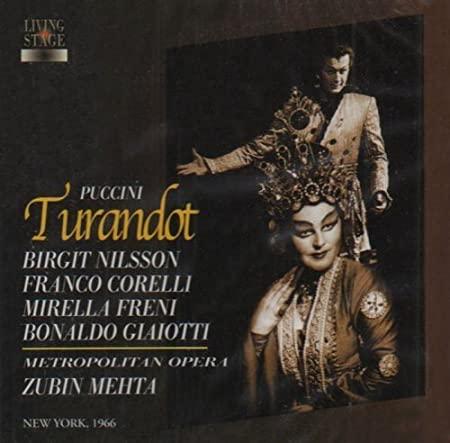
Dimanche 4 décembre 1966 : GOTTERDAMMERUNG (NETWORK THREE). A music drama in a prelude and three acts by Wagner
Sung in German. Cast in order of singing: BAYREUTH FESTIVAL CHORUS AND ORCHESTRA Conducted by KARL BÖHM Produced by WIELAND WAGNER. First Norn: Vera Soukupova. Second Norn: Elsa Cavelti. Third Norn: Anja Silja. Brtinnhilde: Birgit Nilsson. Siegfried: Wolfgang Windgassen. Gunther: Thomas Stewart. Hagen: Josef Greindl. Gutrune: Ludmilla Dvorakova. Wattraute: Martha Mödl. Alberich: Gustav Neidlinger. Woglinde: Dorothea Siebert. Wellgunde: Helga Dernesch. Flosshilde: Ruth Hesse.
Mardi 6 décembre 1966 : Turandot. Metropolitan opéra de New York. Mehta. Birgit Nilsson (Turandot). Corelli. Freni. Flagello. Caruso.
Samedi 10 décembre 1966 : Elektra. Metropolitan opéra de New York. Schippers. Birgit Nilsson (Elektra). Rysanek. Resnik. Dooley. King. Ordassy. Love. Grillo. Williams. Sukis. Pracht. Harper. Fercana. Anthony. Ghazal. Pechner. ENREGISTREMENT LIVE.
Jeudi 15 décembre 1966 : Tristan und Isolde. Metropolitan opéra de New York. Prêtre. Nuotio. Birgit Nilsson (Isolde). Hurshell. Dunn. Wiemann. Bottcher.
Jeudi 29 décembre 1966 : Tristan und Isolde. Opéra royal de Stockholm. Varviso. Neate. Nilsson. Meyer. Saeden. Rundgren. Brilioth. ENREGISTREMENT LIVE.
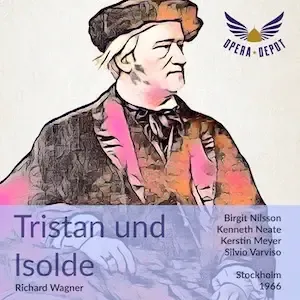
Vendredi 30 décembre 1966 : BBC NETWORK 3 - BIRGIT NILSSON. Gramophone records of arias and. scenes from Oberon (Weber)
Turandot and Götterdâmmerung (Wagner) with FRANCO CORELLI (tenor)
Samedi 31 décembre 1966 : HYLANDS HORNA (Suède) Épisode 3.16. Talk show. A New year Eve event including various opera singers, Birgit Nilsson and Elisabeth Soderstrom, actors and pop groups like Family Four and Steampacket II.
Mise à jour : Pierre Marchais 20251014